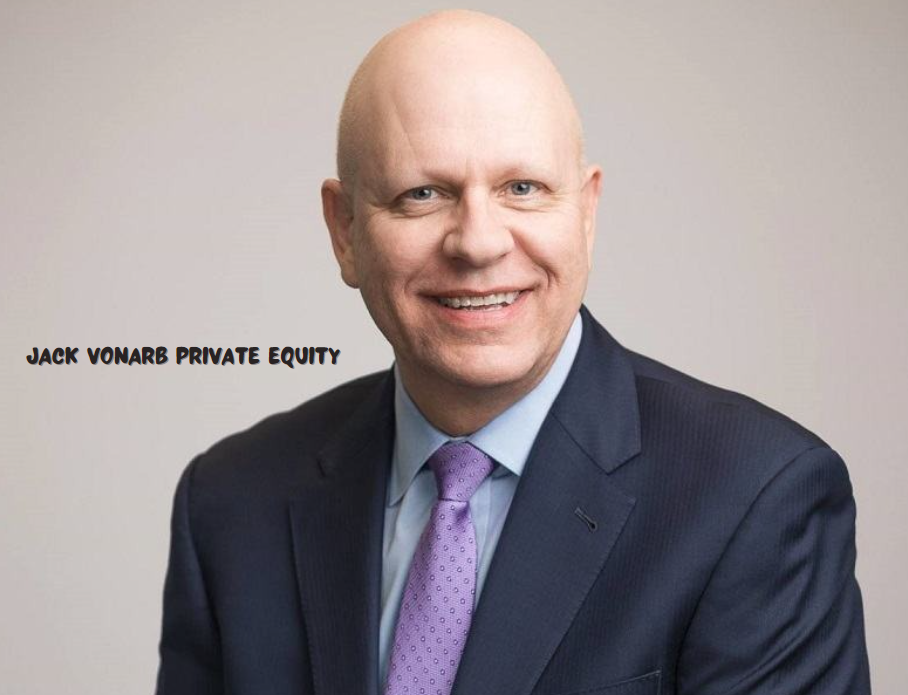Jack Vonarb Private Equity: A Comprehensive Guide to His Strategic Approach and Success
Jack Vonarb is a name that is steadily gaining recognition in the private equity sector. Known for his transformative strategies, Vonarb has built a reputation as a savvy investor who not only acquires companies but actively transforms them into high-performing entities.
This article explores his unique approach to private equity, examines the factors contributing to his success, and delves into the broader private equity landscape in the USA.
Private equity (PE) is a complex and high-stakes industry that involves investing in companies with the goal of enhancing their value and eventually selling them for a profit.
The success of individuals like Jack Vonarb in this field is not by accident—it is the result of a methodical, calculated approach to restructuring and maximizing company potential.
In this comprehensive analysis, we will not only look at Vonarb’s specific contributions but also explore the evolving trends in private equity, particularly in the USA market.

Also Read: Pax Dei Grain Mill: A Comprehensive Guide to Traditional Grain Milling for the Modern Age
Who is Jack Vonarb in the World of Private Equity?
Background and Career Path
Jack Vonarb’s journey in private equity did not happen overnight. He has built a career over decades, working in various capacities that have provided him with a deep understanding of finance, corporate restructuring, and value creation. While there are limited personal details publicly available, Vonarb is recognized for his hands-on approach and ability to identify undervalued assets.
His background in finance and business operations, coupled with his forward-thinking strategies, allows him to approach investments not just from a financial perspective but from a holistic view of business transformation. This distinguishes him from other private equity investors who might focus solely on short-term profits or basic restructuring.
The Strategic Approach of Jack Vonarb
What sets Jack Vonarb apart in the private equity space is his approach to investing. Rather than simply acquiring companies and hoping for market conditions to improve, Vonarb actively works to improve the operational efficiency of the companies he invests in. His strategy is built around long-term value creation through internal restructuring, talent development, and strategic partnerships.
For Vonarb, buying a company is only the beginning. His involvement in operational improvements, cost efficiency measures, and innovative marketing strategies enables these companies to reach new heights. This method of transformation, rather than mere acquisition, has proven to be a critical factor in his success.

Also Read: Pax Dei Grain Mill: A Comprehensive Guide to Traditional Grain Milling for the Modern Age
Private Equity: A Sector Poised for Growth
What is Private Equity?
Before diving deeper into Vonarb’s methodology, it is essential to understand private equity as an industry. Private equity refers to investments made in companies that are not publicly traded. These investments are typically made by private equity firms or accredited investors, and the goal is usually to improve the company’s financial health and operational efficiency before selling it at a higher value.
Private equity firms often raise capital from institutional investors, such as pension funds, insurance companies, and high-net-worth individuals. Once the capital is secured, these firms deploy it by buying companies or a significant equity stake in them. After improving the business over several years, the firms aim to sell it for a profit, often via an initial public offering (IPO) or a private sale.
Why Private Equity Is Attractive to Investors
Private equity offers an alternative investment path that can yield high returns. For investors, the potential for substantial profits is one of the most appealing aspects of this sector. Unlike the stock market, where returns are often determined by broader economic trends, private equity allows investors to directly influence the value of the companies they invest in. This control over outcomes makes private equity a desirable option for those willing to take on the associated risks.
Private equity’s appeal is rooted in its ability to create value by taking a hands-on approach. This can involve restructuring management, cutting costs, optimizing operations, or even pivoting the company’s entire business model. Jack Vonarb’s success in private equity is an example of this active management and the potential rewards it can bring.
Jack Vonarb’s Private Equity Strategy: A Deep Dive
Identifying Opportunities: The Art of Acquisition
One of Jack Vonarb’s key skills is his ability to identify undervalued companies with strong potential for growth. This is the foundation of his strategy and where many private equity deals begin. Finding these companies requires a deep understanding of market trends, industries, and specific business metrics. Vonarb’s ability to spot these opportunities before they become widely recognized is a significant factor in his success.
Unlike many investors who focus on established businesses with strong track records, Vonarb often looks for companies that may have faced recent challenges or are underperforming due to mismanagement or outdated strategies. He views these companies as diamonds in the rough, recognizing that with the right guidance, they can become highly profitable.
Transforming Companies from Within
The real differentiator for Jack Vonarb is what happens after the acquisition. Where many private equity firms might reduce staff, cut costs, and flip the company for a quick profit, Vonarb takes a more long-term approach. He invests in the business itself—its operations, its people, and its strategy.
Some of the methods Vonarb employs include:
- Leadership Overhaul: In many cases, the companies Vonarb acquires are suffering from poor leadership. One of his first steps is often to bring in new leadership, usually individuals with a track record of success in similar industries.
- Operational Efficiency: Vonarb identifies areas where operations can be streamlined, costs can be cut, and processes can be improved. This might involve investing in new technologies, reorganizing the supply chain, or implementing better data management systems.
- Employee Development: While some private equity firms reduce headcount, Vonarb often takes the opposite approach, investing in employee development and retention. By creating a culture of growth within the company, he ensures that employees are motivated to perform at their best.
- Market Expansion: Vonarb doesn’t just stop at fixing internal issues—he also looks for ways to expand the company’s market reach. This can include entering new geographic markets, diversifying product lines, or forming strategic partnerships with other firms.
Long-Term Value Creation and Exit Strategies
Vonarb’s goal isn’t just to flip companies for short-term gains. Instead, he focuses on long-term value creation. This is where his strategy stands out from many others in private equity. He understands that by investing in the future of a company—rather than just cutting costs—he can create more substantial returns over time.
Once a company has been successfully transformed, Vonarb employs a variety of exit strategies to maximize returns. This might include selling the company to another firm, taking the company public through an IPO, or even holding onto the company for several years to continue generating profits.

Also Read: Pax Dei Grain Mill: A Comprehensive Guide to Traditional Grain Milling for the Modern Age
The Evolution of Private Equity in the USA
Historical Context
Private equity as we know it today has evolved significantly over the past few decades. In the 1980s and 1990s, leveraged buyouts (LBOs) were a dominant strategy, where firms would use a large amount of debt to acquire companies, restructure them, and then sell them at a profit. While this strategy is still used today, the industry has diversified, and investors like Jack Vonarb have pioneered more sustainable and value-driven approaches.
Today, private equity firms are involved in almost every industry, from healthcare to technology to manufacturing. The rise of private equity has provided companies with a way to access capital and expertise without going public, and for investors, it represents a lucrative opportunity to generate high returns.
The Current State of Private Equity in the USA
In recent years, private equity in the USA has experienced unprecedented growth. Low interest rates, combined with a robust economy, have provided fertile ground for private equity firms to thrive. In 2023 alone, private equity deals in the USA were valued at over $700 billion, indicating the scale and influence of this industry.
Private equity has also become more democratized, with retail investors gaining access to private equity funds through alternative investment platforms. While the industry was once dominated by large institutional investors, today’s landscape allows for a broader range of participants.
Challenges Facing the Private Equity Industry
Despite its growth, private equity faces several challenges. One of the biggest is the increasing competition for quality deals. With so many firms vying for acquisitions, valuations have risen, making it more difficult to find undervalued companies. Additionally, regulatory scrutiny has increased, with lawmakers calling for more transparency in how private equity firms operate.
For investors like Jack Vonarb, these challenges require a more sophisticated approach. By focusing on long-term value creation rather than short-term profits, Vonarb has positioned himself to thrive in an increasingly competitive landscape.
Also Read: Pax Dei Grain Mill: A Comprehensive Guide to Traditional Grain Milling for the Modern Age
FAQs About Jack Vonarb and Private Equity
1. Who is Jack Vonarb?
Jack Vonarb is a private equity investor known for his strategic, transformative approach to investing in companies. Rather than simply acquiring businesses for short-term profits, Vonarb focuses on long-term value creation by improving the operational efficiency and leadership of the companies he invests in.
2. What makes Jack Vonarb’s approach to private equity different?
Unlike many private equity investors who focus on cutting costs and flipping companies for a quick profit, Jack Vonarb invests in the long-term success of the businesses he acquires. He focuses on improving operations, developing leadership, and expanding market reach to create sustainable value.
3. What industries does Jack Vonarb invest in?
While there isn’t comprehensive public information about the specific industries Jack Vonarb focuses on, private equity investors typically work across a broad range of sectors, including technology, healthcare, consumer goods, and manufacturing. His strategy of transformation and value creation can be applied to companies in various industries.
4. How does private equity work?
Private equity involves investing in companies that are not publicly traded, with the goal of improving their value and eventually selling them for a profit. Investors often acquire a significant equity stake or even full ownership of a company, then work to improve its operations before exiting the investment through a sale or IPO.
5. What are the long-term benefits of private equity?
The long-term benefits of private equity include the potential for high returns, direct influence over a company’s operations, and the ability to create value by improving business performance. Unlike public market investments, private equity allows for more active management and strategic decision-making.
Also Read: Pax Dei Grain Mill: A Comprehensive Guide to Traditional Grain Milling for the Modern Age
Conclusion
Jack Vonarb’s unique approach to private equity, with a focus on long-term value creation and company transformation, sets him apart in a competitive industry. By actively improving the companies he acquires, Vonarb has established himself as a forward-thinking investor who prioritizes sustainable growth over short-term profits.
The private equity industry continues to grow in the USA, offering significant opportunities for investors and companies alike. As competition for deals increases and regulatory scrutiny tightens, the strategies employed by individuals like Vonarb will likely become even more valuable.
For those interested in private equity, whether as investors or entrepreneurs, understanding the methodologies of leaders like Jack Vonarb can provide critical insights into how to succeed in this dynamic field.
Also Read: Pax Dei Grain Mill: A Comprehensive Guide to Traditional Grain Milling for the Modern Age






